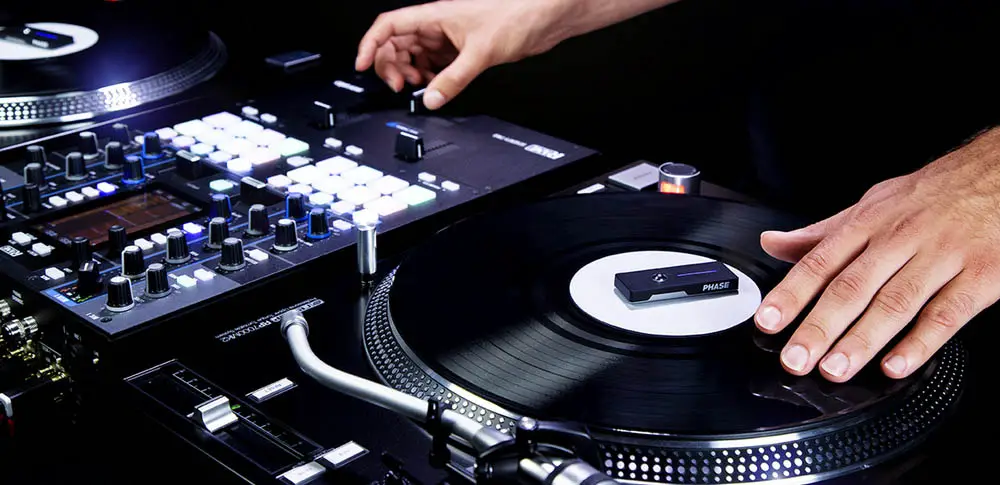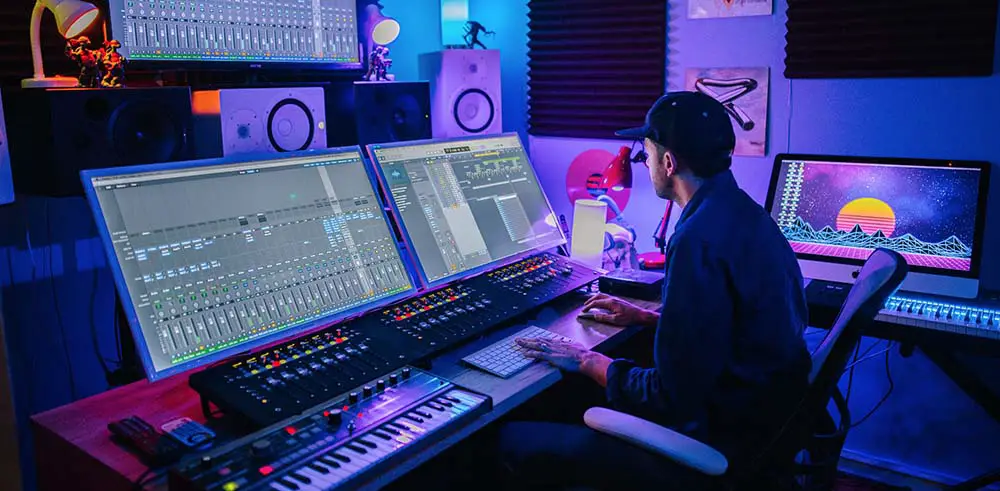7 Interesting Facts About DJing
It’s the 21st century! We all know what DJing is and how prolific it has become.
The art of DJing has been truly transformed in the modern digital era, shifting from the fringes of truly underground dance events to the biggest stages and arenas in the entire world.
You might know a thing or two about DJing already.
But, whether you think you’re a DJ encyclopedia already or are looking for a few cool DJ facts to share with mates, here are 7 interesting facts about DJing!
1.DJing was Invented Accidentally
DJing has a long, illustrious history that dates all the way back to the 1930s, which may be hard to believe!
Back then, there was an influential radio presenter called Walter Winchell. Radio was massive at the time and radio performers were major celebrities – but they weren’t known as radio DJs until Walter Winchell coined the phrase in 1935.
Walter Winchell called radio DJ Martin Block a “disc jockey” to describe how he’d flip vinyl records and cut between different parts of his show before throwing a new record on the turntable.
DJing was invented as a product of these radio shows. Radio artists and presenters would cut between different songs from the latest recordings, much the same as DJs do today!
DJing isn’t so modern after all and was pretty much invented accidentally as radio DJs developed techniques to keep their shows fast-paced, exciting, and fit for dancing – sounds familiar, right?!
2.DJing Fuelled Electronic Dance Culture
Electronic dance music culture, sound system culture, and rave culture have been spurred on and fuelled by DJs.
The whole DJ setup has a natural synchronicity with sound systems and spontaneous parties.
Even throughout WW2, DJs would play covert jazz parties at Whiskey á Go-Go in Paris.
DJs can roll up to a venue with just records – no instruments required – and play their music with just turntables and a sound system. No sound checks, no setup, no musicians required.
This plug-and-play style helped set the foundations for the rave scene where time is of the essence – you need to set up and get going before you’re caught!

3.Scratching is Highly Esteemed Amongst Musical Circles
DJs and musicians have always had a somewhat uneasy relationship.
Unless you also produce music, DJing fundamentally revolves around playing other people’s music, which has pretty much always been accepted for DJs but wouldn’t cut it for musicians (unless you’re a cover’s band).
But, today, DJing is highly respected for its skill and talent. You have to execute shows under massive pressure too, and there’s nowhere really to hide if you screw up!
The high-echelon skill of DJing is best encapsulated by scratching and turntablism which really helped propel DJing into the limelight throughout the 70s and 80s.
Grandmaster Flash, the Grand Wizard Theodore, DJ Jazzy Jeff, DJ Kool Herc, Afrika Bambaataa, and many others started to develop insane scratching and beat juggling skills.
Scratching is not easy, it’s a niche skill.
Learn to do it properly and you will earn the respect of the audience but also of other musicians and DJs alike!
4.DJs Don’t Always Perform Alone
When we consider the modern DJ, we might often think of the one-man or one-woman-band, alone on the stage.
In reality, DJs often don’t perform alone. In fact, in hip-hop especially, DJs often perform with a vocalist.
There are many prolific hip-hop duos; most of the old-school rappers in New York had a DJ/producer backing them.
Biggie Smalls AKA. the Notorious BIG was backed by DJs Mister Cee, DJ Premier, and Lord Finesse amongst others.
Modern hip hop duos include Macklemore and his DJ Ryan Lewis, or Atmosphere and Ant.
5.DJs Used to Keep Their Records Secret
When vinyl was fully in the vogue, DJs would really strive to claim the best records and make the best mixes.
If you found a gem by digging the crates then you probably wouldn’t be in a rush to tell your other DJ mates about it – they can hear it at the next show!
Your records would represent the lifeblood of your performance and likely a significant financial investment too.
If you found a good mix, you’d keep it to yourself – maybe this hasn’t changed an awful lot!

6.DJs in the 90s – The Digital Era
When digital media came out in the 90s, e.g. the CD with MP3 which became widespread in the early 90s, DJs were pretty divided.
Vinyl die-hards will tell you that digital killed the scene, but in reality, digital media transformed DJing into the global sensation it is today.
The main upshots of this are accessibility and cost. DJs could access more tunes for cheaper and genres were becoming louder, more developed, and endlessly niche as sub-genres blossomed.
In the 90s you saw the emergence of drum and bass as well as trance, some forms of techno and hardcore genres.
More music meant greater demand for DJs and a broader sonic palette to craft mixes from.
7.DJing Changed Culture Forever
The proliferation of DJIng throughout its near-100 year history has changed culture forever, not just music culture, but wider society too.
So many genres we now take for granted were enabled and fuelled by DJs.
Take house music, said to have originated in 80s Chicago at the “The Warehouse” nightclub in Chicago’s South Side. Early house DJs were limited in terms of equipment, they often had to use a combination of tape and vinyl with no mixer, headphones, or means to vary the speed of tracks.
But, to keep the dance going through day and night, they found a way to make it work.
Frankie Knuckles, the “Godfather of House,” developed remixing techniques where he’d use a tape recorder to lay percussion and other beats over soul, funk, and disco tracks. The goal was to conform everything to a solid, driving 4/4 beat that would keep dancefloors rocking through the night.
DJ’s impacts on culture are perhaps no better defined than in the hip hop scene, where DJs formed the cornerstone of a new wave of urban music that took over the world in the late 70s.
DJs combined with rappers and B-boys and B-girls helped fuel the inner-city communities that came to produce the world’s greatest hip hop artists, past and present.
In fact, many DJs are or were former B-boys including DJ Lean Rock from the Floorlords crew, DJ Nobunaga, from EXG, and South DJ Scream of the South Front crew.
All of these cultural aspects helped us, as humans, embrace the dance and party scene as a method for socializing to the backdrop of music.
We’ve been doing that for thousands of years, but DJs are the cornerstone of the modern party scene.
Summary
DJing is culturally and socially complex and has influenced us in so many ways.
Today, DJing is an intrinsic component of music and musical performance. It’s provided so many with new opportunities, both in front and behind the decks.
You may also like: